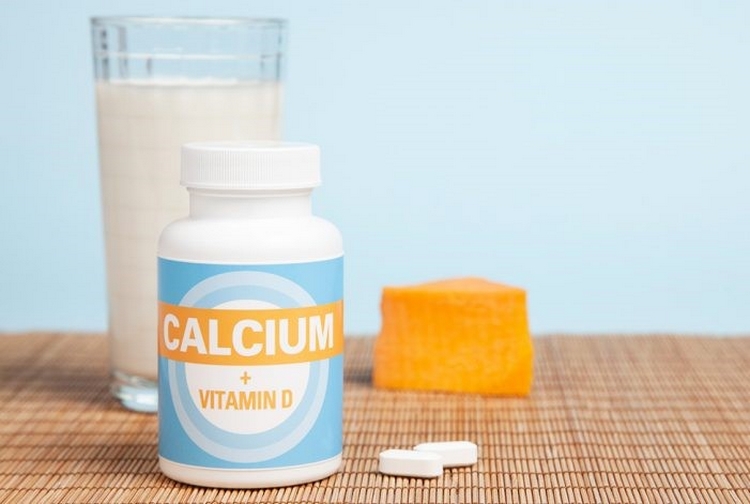Which vitamins to take when? It is the best time of day
We have known for a long time that nutrition is closely linked to the immune system and the risk and severity of diseases. It is therefore essential for all of us to keep an eye on our diet during the ongoing COVID-19 pandemic. This is not a time for restrictive crash diets. Adequate amounts of minerals and vitamins provided by a healthy diet help to ensure a sufficient number of immune cells and antibodies, which are important when the body responds to viral infections. In the case of insufficient intake of vitamins and minerals through food, food supplements can be used. Doctors warn that relying on supplements – and excessive doses – can do more harm than good in the fight against coronavirus. Nevertheless, many stock up on anti-inflammatory vitamins such as vitamins C, D, probiotics and zinc. In order for food supplements to develop their full potential, you should know which vitamins are to be taken and when. Here we give you an overview of the best times for taking certain vitamins and minerals.
When to take vitamins? Morning or evening?

The best time to take a lot of vitamins and minerals is with a meal in the morning. However, there are a few dietary supplements that can promote healthy sleep if taken just before bed. Therefore, the best time depends on which vitamins you are taking and what health effects you hope to get from taking them.
About the vitamins that one In the morning should include:
- vitamin C
- Certain B vitamins
- Vitamin D
To the vitamins and minerals that you get better in the eveningthat should be taken just before bedtime include:
- Vitamin B3 (niacin)
- magnesium

You also have to remember that certain vitamins must be taken in combination with a meal. This is because they are “fat soluble”, which means that they are only along with fat be properly absorbed by the body. So if you take your vitamins in the morning, you should definitely add healthy fats like nuts, avocado or coconut oil to breakfast. Fat-soluble vitamins include: Vitamin A, Vitamin D, Vitamin E and Vitamin K.
Vitamin A

Vitamin A supports our eyesight, organs and our reproductive system. There is no evidence that it is better to take vitamin A in the morning or evening, so the decision is up to you. Just make sure that vitamin A and beta carotene are both fat soluble. In most cases, this means that you need to take vitamin A along with high-fat foods.
B vitamins

B vitamins – which include thiamine, folic acid and riboflavin – help your body function properly and stay healthy. If your level of certain B vitamins is too low, symptoms such as tiredness and poor concentration occur. Confusion and anemia can also occur in severe cases, depending on which B vitamins you lack. Most people take B vitamins as a group, either in a multivitamin capsule or in a B complex supplement.

There is some evidence that certain B vitamins can interfere with sleep. For example:
- Vitamin B6, or pyridoxine, can cause vivid dreams and improve your ability to remember dreams. Researchers in a small pre-study published in 2002 gave college students very high doses of vitamin B6 over five days and found that their dreams were more vivid, colorful, and bizarre than normal. You should be able to avoid this problem by yourself Vitamin B6 in the morning take in.
- Vitamin B 12 helps your body produce energy, and some people have reported that taking it in the evening makes it too energetic to fall asleep. So it would be better if you Vitamin B 12 in the morning Take at the same time as the other B vitamins.
Conversely, it is possible that Niacin, also called vitamin B3 known to you in the evening can help you fall asleep. Evidence suggests that taking a high dose helps some people fall asleep more easily. However, you should not drink alcohol at the same time as it can increase the effects of niacin.
Take vitamin C.

Vitamin C helps our immune system function more effectively and also plays an important role in protecting cells from free radicals. Vitamin C is water soluble, so you can usually take it on an empty stomach. However, some people find that vitamin C, especially in larger doses, can cause stomach upset and possibly even diarrhea. If you find that your digestive system is disturbed, take the supplement with breakfast.

Some people have reported that larger doses of vitamin C have disturbed their sleep. There is no real medical evidence for this, but if you are concerned about it, you can Vitamin C in the morning take in. According to the German Nutrition Society (DGE), the recommended daily dose of vitamin C is 75 milligrams for women and 90 milligrams for men.
Vitamin C can help your body absorb iron better. So, if your doctor recommended taking extra iron, you should take vitamin C at the same time, no matter what time of day it happens.
Vitamin D intake time of day

Vitamin D, the “sun vitamin”, plays an important role in many bodily functions. It strengthens the immune system, interacts with calcium in the bone metabolism, and has a positive effect on the nerves and brain. Your body produces vitamin D when your skin is exposed to the sun. If a deficiency is found, vitamin D can also be supplemented.
According to Harvard, there are several clinical studies showing that vitamin D reduces the likelihood of developing acute respiratory infections by 12% to 75%. These studies included both seasonal and pandemic flu caused by the H1N1 virus in 2009. Among those infected, the flu symptoms were less and the duration of the disease was shorter when they received vitamin D doses of more than 1000 IU. The benefit was relatively greater for people with vitamin D deficiency than for people with sufficient vitamin D levels.
Vitamin D is a fat-soluble vitamin, which means it is best taken with a meal that contains some fat. There is no evidence that vitamin D intake is better or worse at a particular time of day.

However, some people report that vitamin D can interfere with sleep, especially if it is taken too late in the day. At least two studies have examined whether taking higher doses of vitamin D can affect sleep, regardless of the time of day.
- A study published in 2013 found that women with multiple sclerosis who had a high vitamin D level (4,370 IU or more than seven times the recommended daily dose) had a lower melatonin level in the blood. Women who took 800 IU a day did not have this effect.
- Another study, published in 2016, found that older women who took 2,000 IU of vitamin D a day due to a deficiency noticed a deterioration in their sleep quality.
Vitamin E.

Vitamin E protects the cells from damage, strengthens the immune system and helps to dilate blood vessels and prevent blood clots. A vitamin E deficiency can cause nerve damage, visual disturbances and a weakened immune system.
Since it is a fat-soluble vitamin, you need to take vitamin E with a fatty meal. Aside from this advice, there is no evidence that taking vitamin E is better or worse for your health at any given time of day.
Vitamin K.

Vitamin K supports blood clotting. It also helps build strong bones, can protect against cancer, and fights diabetes by improving the body's sensitivity to the hormone insulin. It is another fat-soluble vitamin, so take Vitamin K with a meal. However, there are no research results that show a “best” or “worst” time of day for vitamin K intake.
calcium

You've probably heard that calcium makes bones strong and that many people don't eat enough of them. Adults and children from 4 years old need between 1,000 and 1,300 milligrams of calcium per day. There are also many people who do not consume as much of it. Especially vegans should pay attention to their calcium levels.
There are different types of calcium and different recommendations for their intake. Calcium citrate (a common form of calcium in supplements) can be taken alone or with a meal. Calcium carbonate (a cheaper supplement) is broken down with the help of gastric acid, so it is best consumed with food.
Since you should distribute your calcium dose throughout the day for optimal absorption (your body does not absorb more than 500 milligrams at once), you can use calcium both in the morning and in the afternoon or in the evening especially if your doctor has advised you to take a larger dose each day.

Ideally, you should have calcium not at the same time as an iron-containing multivitamin or magnesium as your body may not be able to take it as well. However, some research published in 2014 suggests that calcium can help you fall asleep, and many supplements combine calcium and magnesium in one (often very large) pill. You must decide (in consultation with your doctor) what is best for you.
Finally, calcium supplements can affect the effects of certain medications, including some types of antibiotics, medications for osteoporosis, blood pressure medications, antacids, medications for seizures, and cholesterol medications. Therefore, it is important to talk to your doctor about how the medications you have prescribed could interact with calcium (or other supplements you are taking).
magnesium

The mineral regulates nerve function, controls blood pressure and builds (together with calcium) the bones. Most people get enough magnesium from their diet, but magnesium deficiency can lead to nausea, loss of appetite, and fatigue.
Of all the vitamins and minerals you can eat, magnesium is the one that works best at night is taken. This is because magnesium promotes healthy sleep if taken just before bed. Magnesium can also help people who have leg cramps at night.

Conclusion
Vitamin and mineral supplements cannot help you if you forget to take them. Therefore, you should choose the best time of day according to your daily routine. Many people make taking vitamins part of their morning routine, and that should work well, provided your breakfast contains some sources of fat.
If you are not sure which vitamins and minerals to take when, talk to your doctor. It can help you figure out which supplements to take and when. In addition, you should always tell your doctor if you are taking over-the-counter vitamins, minerals, or other nutritional supplements, as there may be drug interactions.
The post Which vitamins to take when? It is the best time of day appeared first on Deavita.com | Living ideas, design, hairstyles, make-up, lifestyle, health and beauty tips.





















